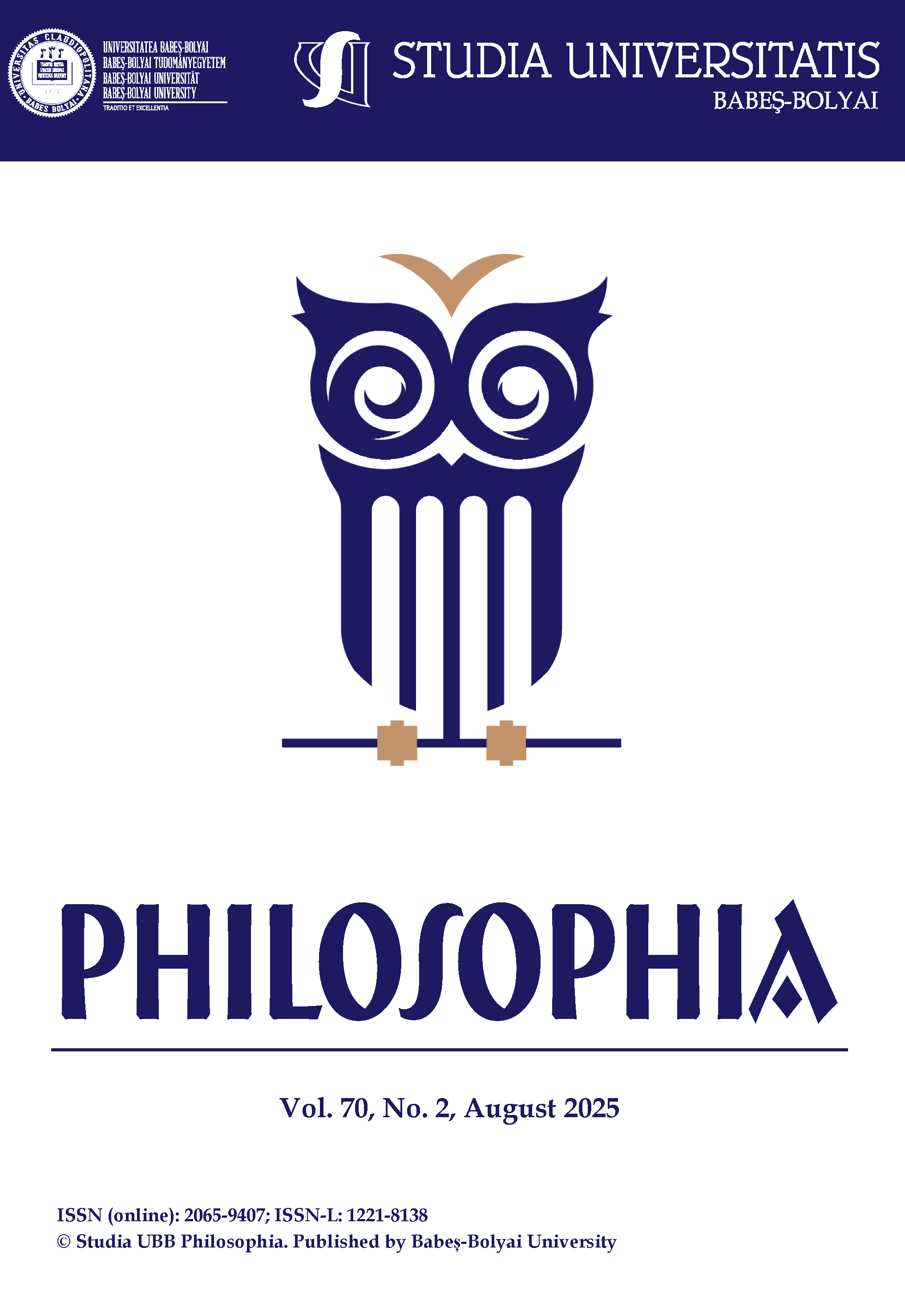‘Oh My Friends, There is No Friend.’ Philosophies of Friendship from Aristotle to Derrida
DOI:
https://doi.org/10.24193/subbphil.2025.2.01Keywords:
reciprocity, equality, mutual recognition, asymmetry, irreducible difference, hospitalityAbstract
The paper analyzes the crisis of friendship understood above all as the crisis of a theoretical paradigm that, starting from the Homeric exaltation of friendship, passing through the famous Platonic dialogue, the Lysis, Aristotle’s Nicomachean Ethics, Cicero’s De amicitia, Montaigne’s De l’amitié, and ending with Kant’s reflections on human subject, has dominated western cultural tradition. This classical model of friendship, based on reciprocity, equality, mutual recognition and decisive for a certain conception of the political, goes into crisis at the end of the 19th century and then in the 20th century with the emergence of man’s existential loneliness. Beginning with Nietzsche, and then in the philosophy of Derrida, a conception of friendship as inequality, asymmetry, disproportion emerges, which overcomes any illusion of being-together confusingly and turns to the possibility of a being-with-another that respects its irreducible difference. A concept of friendship thus takes shape, also present in some of Ernst Jünger’s reflections, alongside the traditional one, linked to estrangement and insurmountable distance that makes the very idea of friendship extremely aporetic but at the same time opens up new forms of hospitality and relations with the other.
Downloads
Published
How to Cite
Issue
Section
License
Copyright (c) 2025 Studia Universitatis Babeș-Bolyai Philosophia

This work is licensed under a Creative Commons Attribution-NonCommercial-NoDerivatives 4.0 International License.



